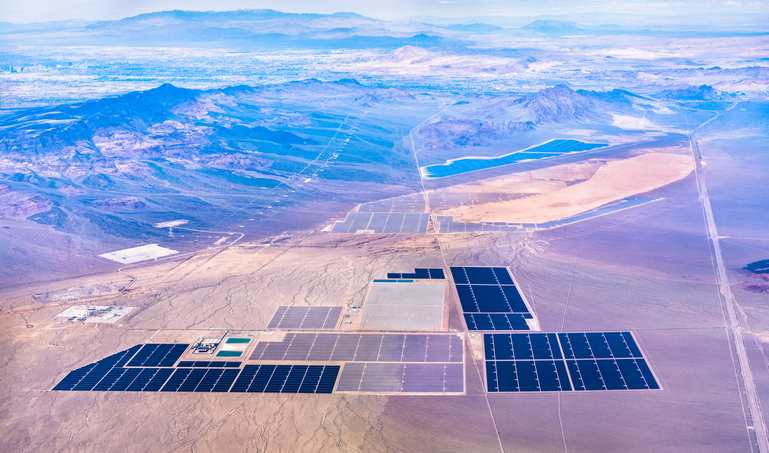In 2020, on a party line vote, the Virginia Legislature passed a law misleadingly labeled the “Virginia Clean Economy Act” (VCEA).
This law radically changed Virginia’s energy policy, which for many years supported a balanced portfolio of electricity sources—coal, natural gas, nuclear, petroleum, and a smattering of renewables. It replaced this system with a mandate requiring Virginia’s two primary electric utilities, Dominion Energy and Appalachian Power, to generate all of their electricity exclusively from wind and solar sources by 2045.
CFACT Highlights Harm
Beginning in early 2021, the Committee for a Constructive Tomorrow (CFACT), published a series of articles exposing the harmful consequences imposed on Virginia by this radical legislation. According to CFACT’s analysis the notable impacts in Virginia of 100 percent wind and solar mandate are likely to be: an $800 per year increase in electricity cost for the average ratepayers; the clearcutting of forests and destruction of productive farmland, to make way for a vast array of solar panels covering 490 square miles of land, an area 20 times the size of New York City; the end historic State Corporation Commission regulatory authority over excessive electricity rates, by declaring all solar and wind industrial facilities are automatically “in the public interest.”
After CFACT released its analysis, the the Suburban Virginia Republican Coalition (SUVGOP), a Republican support group focused on suburban voters, concluded the VCEA, a bill created, pushed, and passed entirely by Democrats, must be repealed. SUVGOP sees this as issue that can galvanize voters in both low income communities and suburban voters concerned about the destruction of trees and the environment, alike.
In Virginia’s 2021 statewide elections, SUVGOP says it hopes its efforts will to gain national attention by demonstrating that exposing the adverse consequences of wind and solar energy can be a winning message for Republicans.
‘RepealVCEA.Com’
SUVGOP began its effort by creating a website called RepealVCEA.com.
The website includes a video documenting the recent clearcutting of a mature forest in Spotsylvania County, just outside the city of Fredericksburg, to create the massive 6,300 acre Fawn Lake solar facility, the largest solar project east of the Mississippi.
As part of its ongoing efforts to generate support for repealing VCEA SUVGOP subsequently, worked with VA state Del. Nick Freitas (R.-Culpeper) to introduce a bill (HB 2265) to repeal of VCEA.. SUVGOP also held a series of receptions for all 18 of the GOP candidates running for statewide office in the 2021 elections, Governor, Lt. Governor, and Attorney General, at which it urged each of the candidates to support repealing VCEA. SUVGOP members also wrote articles for conservative Virginia publications, such as the Jefferson Policy Journal and Bacon’s Rebellion, to educate the public concerning the high economic and environmental costs of VCEA. In addition, SUVGOP also compiled the only comprehensive list of all solar projects proposed or constructed in the Commonwealth. The list revealed that, on a per capita basis, more industrial-sized solar facility projects are located in Virginia than in any other state, despite Virginia ranking 24th in terms of annual sunshine.
‘Not Doable, Affordable, or Good’
CFACT’s and SUVGOP’s efforts have borne fruit.
The Republican candidates for state-wide office incorporated the ‘Repeal VCEA’ message into their policy positions on energy.
E&E News, a leading publication covering environment and climate issues, summed up the Virginia GOP’s position with the headline, “GOP united in ire over energy law in VA Governor’s race,” saying in the article, “GOP candidates generally agree on one thing: They hate the state’s new energy law and want to repeal it.”
“We need an electrical grid which is stable, and we absolutely have to change direction,” Glenn Youngkin, who won the Virginia GOP’s gubernatorial nomination, told E&E News. “We must change direction from the clean energy plan that was passed.
“We must change direction, because it is not doable, affordable, or good for Virginia,” Youngkin said.
CFACT’s research really opened our eyes to high cost of the VCEA, says Ron Wright, co-chair of SUVGOP.
“I don’t think we could have launched and sustained the Repeal VCEA campaign without the information and assistance provided by CFACT,” Wright told Environment & Climate News. “We relied on CFACT’s deep knowledge of the energy industry and climate science to inform and guide our approach.
“We hope our efforts will lead to success for all Republicans, not only in Virginia this year, but also throughout the Country in 2022,” said Wright.
‘Climate Alarmists … are … Scaremongers’
CFACT worked on this issue as part of its mandate to educate the public concerning the impact of laws impacting their lives and the economy, says Craig Rucker, president of CFACT.
“CFACT’s primary mission is public education and influencing the debate on important policy issues, such as electricity generation,” said Rucker. “Climate alarmists who claim carbon dioxide is a ‘pollutant’ and that there is a ‘climate crisis’ are simply scaremongers who cannot support their beliefs with facts and scientific research.
“CFACT is pleased to join with others, such as the Heartland Institute, to provide policy makers with facts and truth to rebut many of the myths, misinformation, and outright falsehoods advanced by some of the mainstream media concerning climate change.” Rucker said.
With the November election only a few months away, Virginia voters will soon have the opportunity to express their views on the long term desirability of the VCEA, and the politicians who supported it.
Collister Johnson, J.D., (Johnson.collister@gmail.com) serves on CFACT’s board of advisors.
